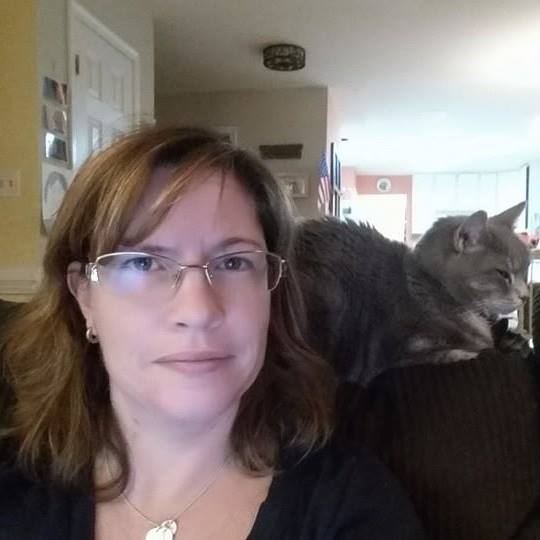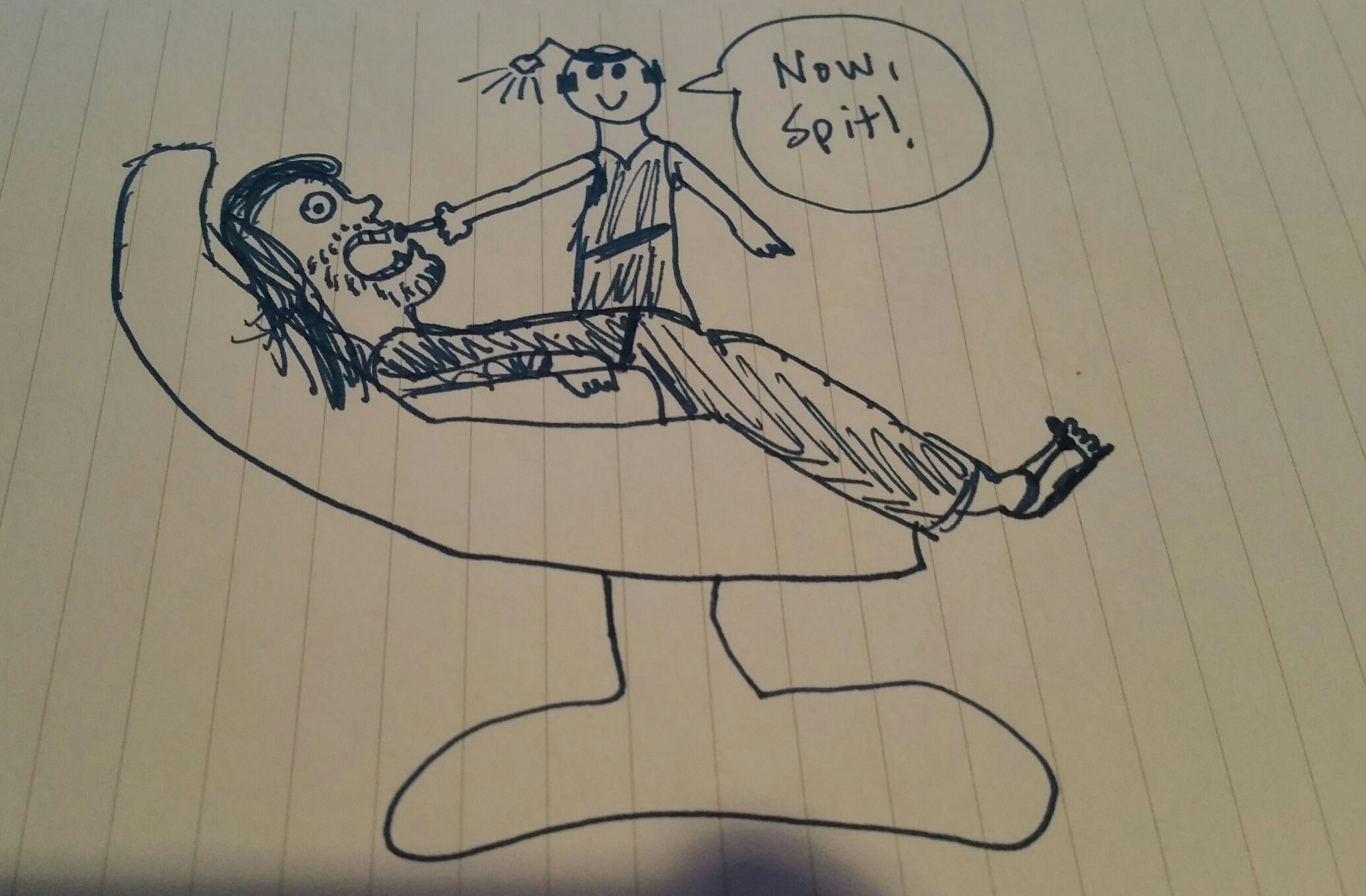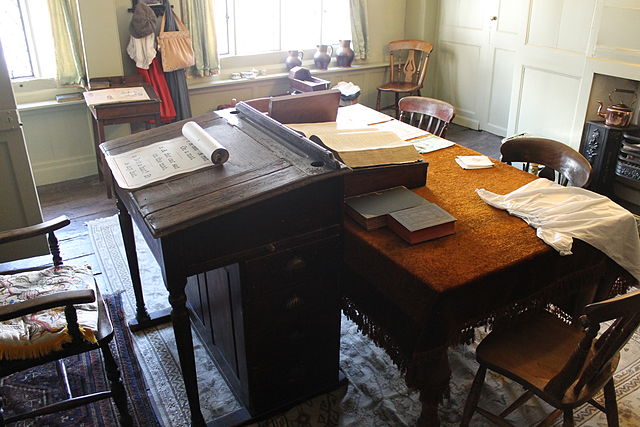Well before the Trayvon Martin verdict, I had seen, heard and read about white people dismissing the racial context of the case. Some do this artfully and skillfully; others, not so much. I’ve been wanting to explore some of these maneuvers more closely for a while now.
1. Some express outrage that the killing of a white person would not have garnered the media attention, and contort that to mean that suddenly black lives are being held up as more important than white ones. “Unfair!” they exclaim. “I mean, I don’t think a white person’s life has more value than a black person’s life – why should a black life be more valuable than a white one?” They may, in their efforts to support this distortion, hold up stories of individual white people who were killed by black people, and cry, “Where is the outrage over THIS??? Isn’t this just as horrible as Trayvon’s death???”
To them I would say, yes – it is as horrible. I guarantee there is outrage. But chances are pretty good that the black suspect was pursued, caught, charged and convicted, judging from the disproportionate representation of blacks in the prison system. Chances are also good that if the black killer was NOT charged, (already, we’re dealing in less than realistic terms) the white victim’s family wouldn’t have had to take to Change.org to bring attention to the case. Given the racially imbalanced media coverage of kidnapping victims, known now as “Missing White Woman Syndrome,” I’m kinda doubting a young white murder victim’s family in an affluent community would have to work that hard to garner national attention. So, please. Don’t claim offense that a particular white person’s death isn’t getting the same media play as Trayvon Martin’s and call it a demand for equality, as if the white population has been oppressed and misrepresented for so long.
2. Others say, “Why aren’t people paying attention to black-on-black violence?” Actually, they ARE. They HAVE been trying. On July 29th, the Congressional Black Caucus and other black leaders convened a summit in Chicago to address urban violence there, and elsewhere. It was far from the first of its kind. Once again, they’re working towards – pleading for – a multi-pronged approach to the inner cities. Two of the organizers, Congressman Bobby Rush and Danny K. Davis, exhorted the crowd:
“We had many summits…now it’s time for wise men and women to stand up and show us how to get out of this mess,” Rush said charging the crowd.
“There’s no panacea” to fixing Chicago’s violence issue said Davis. “It’s poverty, school closings, lack of good educational opportunities, lack of jobs, parenting and a need to rebuild infrastructure.”
Rather than sounding the one note song of gun control, here people are doing their best to bring attention and power to the populations systematically wracked by violence (though, of course, sensible gun control figures into the story as a whole.) Prominent political African Americans are issuing a call to their communities to restore self-respect and reject violence. You don’t get any more public and powerful than President Barack Obama, in his incredibly moving press conference after the Zimmerman verdict, saying,
Now, this isn’t to say that the African American community is naïve about the fact that African American young men are disproportionately involved in the criminal justice system; that they’re disproportionately both victims and perpetrators of violence. It’s not to make excuses for that fact — although black folks do interpret the reasons for that in a historical context.
“Black folks do interpret the reasons for that in a historical context.” So do some white people, but in my opinion, not nearly enough.
In the entertainment world, we have a brilliant artist of the spoken word, Dahlak, in his piece “I Know You Like it Rough.” It is almost 4 minutes of piercing analysis and profound sadness. Equal parts feminist and music critic. Equal parts anti-domestic violence and pro-meaningful sex.
This is the lasting legacy of generation Hip Hop. Where calling you “baby” sounds bitch-like, and calling you “bitch” sounds like baby.
He is trying to understand why, ladies, “you don’t feel SMALL when I call you ‘Lil Mama.'” He is trying to understand why, gentlemen, “[You’re] tryin’ to get to [her] AND that booty – like it’s two different things.” He is mourning the fact that Chris Brown is still making “hits.” And he’s not just talking about songs.
On the media front, CNN’s Don Lemon supported Bill O’Reilly’s comments urging the black community to get its act together – particularly its males. It’s understandable (to me, anyhow,) why the message coming from O’Reilly would be dismissed as racist and condescending – whether or not that was his intention. Even from Lemon, though, these sentiments were lambasted by many African-Americans as traitorous (turncoat, slave, other unkind and unfair labels abounded.) Lemon answered his critics brilliantly, point-for-point – particularly Russell Simmons – in this commentary of his own. He pulls the final punch, saying:
Finally, you write in part, I want the black kids to grow up and be like you. I want them to know that their imagination is God inside of them. Russell, I really appreciate that, but I don’t want black kids or kids of any race to be just like me. I want them to grow up to be better than me. That’s what my parents wanted for me. And their parents wanted for them. And as we approach the 50th anniversary of the march on Washington, we should all realize that it’s what those brave men and women who risked their lives for our freedom and equality wanted for us. They fought for us and generations to come to be better than them, not to be illiterate or deadbeat dads or criminals. We must stop the blame for things that we can change ourselves and, again, as the first African-American president of the United States says, no more excuses.
So the question, “Why don’t people pay attention black-on-black violence?” the answer is clear. Many, many people of MANY stripes are attempting to address it. The person who ASKS that question may not be, since if they were, they’d easily learn that it’s the subject of much attention already. And it in NO WAY negates the injustice of the forces at play that created the Trayvon Martin situation. It is simply a way of changing the subject from Stand-Your-Ground laws and racial profiling to debilitating poverty and substandard education in our inner cities. The causes of Martin’s death and the causes of inner-city violence are not necessarily the same, and they’re CERTAINLY not mutually exclusive.
3. Others point to Zimmerman’s ethnicity, claiming that Zimmerman can’t have been acting out of racial motivation – he’s Hispanic, for God’s sake! To them, I say, OH! THAT changes things! Because everyone knows there aren’t any racist hispanic people! They’re BOTH minorities in this country, so they would NEVER do one another harm! People. Please. It is possible to be a minority and racist. It is possible to be a female and sexist. It’s possible to be gay, and heterophobic.
Please consider:
1. Discrimination and prejudice take many forms and run through every. single. subset. of humanity.
2. So do kindness, consideration, intelligence, talent, and bravery.
3. It takes a variety of combinations of the qualities in Sentence #2 to combat the injustices that spring from Sentence #1.
I believe each of us possesses at least some of what it takes to combat that injustice. With humility and hope, I offer some practical suggestions on how – both internally and externally.
Empathize. It is advice as old as time, but really, truly try to put yourself in the victim’s shoes. Try to understand. Widen your emotional lens. Take in more of a situation’s and person’s context. I’m not suggesting every action needs microanalysis – sometimes a person cuts in front of you in line simply because he or she is a jerk. But on issues that can reflect and/or cause major cultural shifts, like the killing of Trayvon Martin, people of all races need to step back and consider the personal and historical context of the uproar.
Don’t change the subject. Don’t point to equally Pressing Societal Ill B when we’re trying to talk about Pressing Societal Ill A. Unless you’re attempting to connect the two and make them BOTH better. But certainly don’t point to Pressing Societal Ill B as a way of minimizing or dismissing Pressing Societal Ill A.
Don’t forget. Again, President Obama made the point beautifully when he said,
[Black people] understand that some of the violence that takes place in poor black neighborhoods around the country is born out of a very violent past in this country, and that the poverty and dysfunction that we see in those communities can be traced to a very difficult history.
Expecting people to live completely unimpacted and uninformed by that history is as unfair and unrealistic as asking people to change the volume of blood they need for their bodies to function. To paraphrase the great comedian, Louis CK, it’s not like the Voting Rights Act was passed, and ever since that moment, things have been JUST GREAT! for black people in this country.
Help. Making things better can happen with the smallest of gestures. If you have the resources and energy to revamp education or make healthy food available and affordable in the inner cities, great, but most of us don’t, and that’s not what I’m going for, anyway. Here’s is just one of so many ways to help.
Think back to when someone made a racist joke in your presence. Did you call them on it, or did you laugh nervously in an effort not to rock the boat? I’m not suggesting you need to have be confrontational. You can simply furrow your eyebrows, shake your head without a word, or say, “Did you really just make that joke?” There are infinite variations on that tiny gesture to make the racist (or homophobe, or misogynist, or anti-semite) uncomfortable instead of allowing the racist to make you uncomfortable. Do it. Make those gestures. It matters to both the joke-tellers, and the subjects of the joke.
Despite the title of this piece, I am speaking to everyone, here. I’m not just singling out people who hold the majority of any kind of power in this country. I’m speaking to the minorities, too. I believe everyone, of every stripe, can use these guidelines to leave the world a better place than when they found it. If a black person calls me racist (as has happened) I have no problem calling them him or her out on it. I don’t feel guilty doing it – on the contrary, I feel it’s my responsibility to do it. While I do know better than to say, “Some of my best friends are black!” – I will say something like, “You must not know me – that’s completely unfair,” and leave it at that.
To those minorities who might answer with a mocking (but justified) “Oh, so you don’t like being racially profiled?” I would say, “No, I don’t. And I wish you would see that for the olive branch that it is, rather than the complaint it is not.”
To those minorities who might answer further, with “I have been burned waaaaaay too many times to accept that olive branch. It has been pounded into my psyche to be skeptical of that olive branch. People who look like you have extended molotov cocktails disguised as olive branches to people who look like me.”
To that I would answer, “That is completely true and a fair reaction. But that will not keep me from extending the olive branch,” and leave it at that – for them to accept or reject based on their instincts or their knowledge after having gotten to know me.
Further, if asked – and only if asked, I would point to myriad substantive ways I walk the walk when it comes to combating prejudice in my small corner of the world. However – and this is BIG however – I understand why minorities might assume what they assume of me. Through no fault of my own, I was born white in a country whose racial history is horrific. I am not personally responsible for the scourge of racism, or the plight of inner-city black youth, proliferation of guns, or racial profiling. I do, however, consider it a personal responsibility to follow my conscience in trying to erase that scourge. Trying to improve that plight. Removing at least a layer of the barrier between the races from the psyches of my kids – one of whom, for as long as he can remember, lives in a country led by a black president.
Taking the macro-view, let’s please think back to how (then) Africans came to be in this country. Shackled, forced from their homes, shoved into a harrowing journey whereupon their arrival here, they were enslaved and families torn apart – sold to other whites as property. I’m a member of a race many of whose members have resisted – sometimes to the death – giving another race the tools it needs to live up to its potential. I’m a member of a race that systematically denies another race any semblance of family and security, means of education, sense of safety, and simultaneously, reprimands said race for hot having a solid family structure or finishing high school. When will more of us – enough of us – see race relations in this country for what they are and have been? When will we realize the folly and cruelty in cutting off a person’s hands, and then punishing him for not being able to play the piano?











